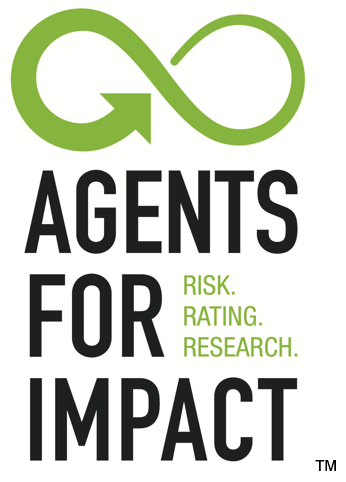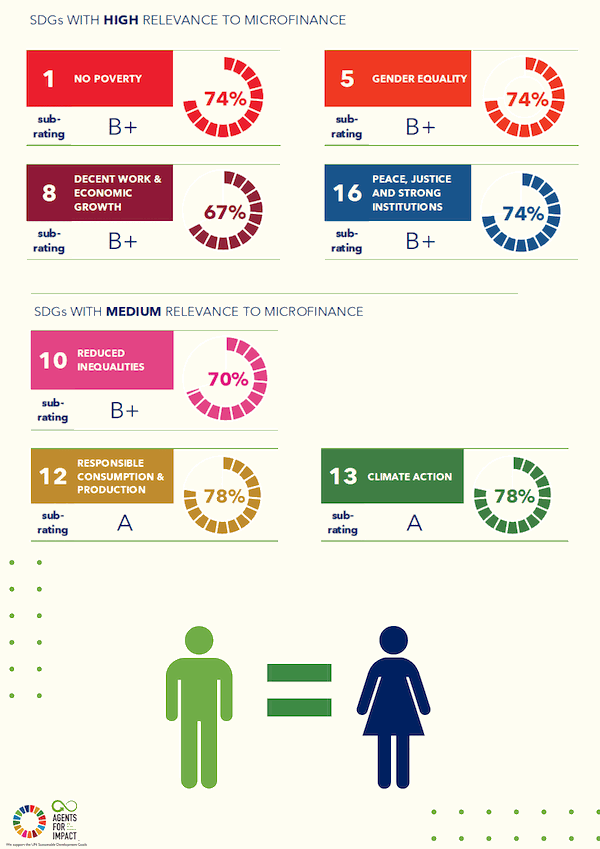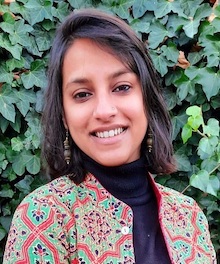 UN Sustainable Development Goal (SDG) 5, “Achieve Gender Equality and Empower All Women and Girls,” is not only a standalone goal but is inextricably linked to the other SDGs. Though moving toward gender equality has long been associated with achieving social or political goals, its proven economic benefits remain under-appreciated. According to the World Bank’s 2021 Global Findex Database, more than 1 billion women worldwide still lack access to the financial system. In fact, women make up the largest unbanked population in the world, with more than 70 percent of woman-owned small and medium-sized enterprises estimated to have inadequate or no access to financial services. The financial gap just for women-owned formal small businesses is estimated to be USD 300 billion.
UN Sustainable Development Goal (SDG) 5, “Achieve Gender Equality and Empower All Women and Girls,” is not only a standalone goal but is inextricably linked to the other SDGs. Though moving toward gender equality has long been associated with achieving social or political goals, its proven economic benefits remain under-appreciated. According to the World Bank’s 2021 Global Findex Database, more than 1 billion women worldwide still lack access to the financial system. In fact, women make up the largest unbanked population in the world, with more than 70 percent of woman-owned small and medium-sized enterprises estimated to have inadequate or no access to financial services. The financial gap just for women-owned formal small businesses is estimated to be USD 300 billion.
In the absence of financial tools, women face difficulty generating income, boosting savings, growing businesses and improving the living conditions of their families. If the ambitious targets set within the SDGs are to be achieved, then a concerted effort is required to implement a gender-smart approach to financial investments and close the gender financing gap.
Thus, embedding a gender focus into investing is no longer just the right thing to do but a smart thing to do. Therefore, at Agents for Impact GmbH, SDG 5 is not only a highly weighted factor in our AFISAR© assessment but is interwoven as a cross-cutting theme across our entire investment process.
The gender-smart lens we integrate into our work applies an extra layer of checks and measures to identify the gendered barriers and opportunities that lie in financial inclusion efforts. We assess gender impacts over the long term under our direct AFISAR© partnerships as well as through regular monitoring and on-site visits – both as part of the due diligence and the rating processes. These interactions trigger processes within the microfinance institutions (MFIs) that lead to long-term sustainable development.
Considering the socio-cultural and economic contexts of the markets in which we operate, we are aware that mere financial investments cannot translate immediately into women’s empowerment. This is particularly challenging considering that some countries that we work in – such as India, Nigeria, Cambodia and Tajikistan – rank quite low when it comes to addressing the gender gap. Thus, financial investments must be coupled with targeted products, financial training, insurance schemes and social initiatives specifically directed toward women to achieve the desired impact.

Gender is a cross-cutting theme across our investment and AFISAR© processes.
Through our AFISAR© process, we assess the extent to which our investees create a conducive environment for women and other vulnerable groups to realize their potential. The rating tool helps the rating committee apply an interdisciplinary lens to identify and assess products, services and policies that might be explicitly or implicitly gendered, thus creating equitable or inequitable impacts. Below are two examples that demonstrate this.
Assessing the provision of social and environmental products such as clean water and sanitation finance
Women tend to outnumber men among microfinance clients, and they share an intimate relationship with natural resources such as water. In many communities, collecting water remains the responsibility of women as they perform household activities such as cleaning, cooking and sanitation. The world’s many regional water crises have a significant impact: globally, women and girls spend 266 million hours every day procuring water. This accentuates “time poverty,” preventing women and girls from being more involved in productive activities such as education, jobs and accessing health care. Through our assessment, we decipher the gender sensitivity and availability of products such as WASH loans. These products not only improve community access to water and sanitation sources but help tackle a social and environmental issue that has a disproportional impact on women.
Climate sensitivity and resilience
Women are disproportionately affected by climate change, in part because they are over-represented in the fisheries and agricultural sectors. Tracking an MFI’s policies and products in terms of climate change helps us nudge the institution to introduce products that are more climate-resilient. We assess the MFI based on its presence in climate-sensitive sectors such as agriculture as well as the measures it takes to minimize its impact. The provision of climate-resilient products (such as disaster risk insurance) and training can benefit women as well as entire communities.
AFISAR©: Integrating a gender-smart lens
These examples demonstrate how applying a gender lens to microfinance can trigger a multitude of benefits. By paving the way for women’s entrepreneurship – including for women to take leadership positions within MFIs – and providing products and services that cater to women and other vulnerable groups, financial services providers can give women the power and agency to turn their lives around.
Agents for Impact integrates a gender-sensitive lens in management workshops, during assessments and in regular interactions with MFIs. For example, we sensitize our partners to identify unconscious bias and invisible barriers faced by women within the institutions to create a safe working environment for women and gender-oriented and -sensitive products and initiatives that lead to positive outcomes.
Investing for and in women can deliver growth rooted in sustainability and inclusivity. Regardless of international commitments such as the SDGs, much progress remains to be made both at the institutional and societal levels to achieve equal gender representation in the financial environment. The financial ecosystem is fragmented and lacks a strategic and systematic focus on gender. Measuring  alignment and commitment to gendered goals, such as those enabled by the AFISAR© assessment, will enable future successes and raise much-needed awareness until gender equality is perceived not as just a moral imperative but also an economic necessity.
alignment and commitment to gendered goals, such as those enabled by the AFISAR© assessment, will enable future successes and raise much-needed awareness until gender equality is perceived not as just a moral imperative but also an economic necessity.
Please contact our team for more guidance and recommendations on developing a gender-smart approach in the microfinance sector.
This feature was written by Pratibha Singh (pictured) and is sponsored by Agents for Impact.
Similar Posts:
- SPECIAL REPORT: Agents for Impact – We Make Positive Impact Investable!
- SPECIAL REPORT: Looking Back to Plan Ahead – The Year of AFISAR
- SPECIAL REPORT: Agents for Impact: Well-equipped for Future Business Development
- SPECIAL REPORT: Increasing Financial Access for Women with Better Data, Mentoring, Staff Training, “Gender-smart” Audits
- SPECIAL REPORT: Partner with Agents for Impact, and We’ll Drive Impact Together!
